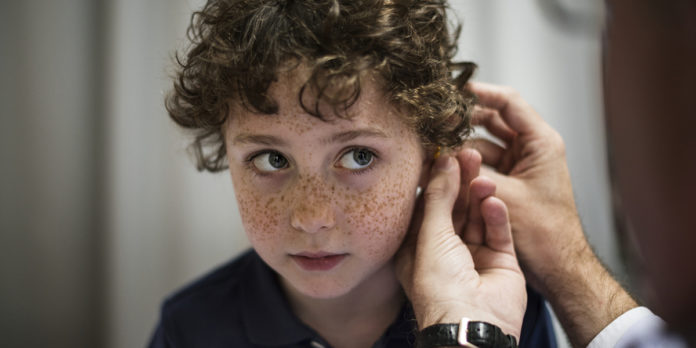A ground-breaking initiative designed to tackle chronic hearing problems and boost educational opportunities among children in remote Territory communities was launched in Darwin.
“Hearing for Learning” is an innovative project founded on research by scientists at Charles Darwin University’s Menzies School of Health Research that will focus on employment and training of community members to assist with diagnoses and treatment of ear disease and hearing problems.
Balnaves Foundation founder and CDU Chancellor Neil Balnaves AO donated $2.5 million to the project, which aims to reduce the need for fly-in fly-out specialists and reduce the treatment waiting period by upskilling community members to support health and education services in remove communities.
“When we learned about the chronic nature of ear disease in children living in remote communities in the Northern Territory, we could not ignore the fact that this likely leads to profound disadvantage in health, education and employment outcomes,” Mr Balnaves said.
“We believe more must be done and the next step is to support the community to deliver a solution.”
“Philanthropy plays a unique role in recognising and piloting new approaches, however, it requires partnership with government to deliver these approaches at scale.”
“Government is to be applauded for putting this unique partnership together to solve what now has become a serious epidemic.”
The initiative is expected to reach 5000 children with a focus on those aged under three, and is co-led by Professor Amanda Leach and Australia’s first Indigenous surgeon, ear, nose and throat specialist Dr Kelvin Kong.
Menzies School of Health Research Director Professor Alan Cass said: “Hearing is essential for strong early childhood development and chronic hearing problems in children cause education difficulties leading to entrenched disadvantage.”
The project will begin with four remote sites and is expected to be rolled out in as many as 20 communities employing up to 40 community-based workers who will be locally trained and supported.
The Federal Government has invested $3 million into the initiative and the NT Government $2.4 million, in addition to the $2.5 million from the Balnaves Foundation.
(Source: Charles Darwin University Australia)










